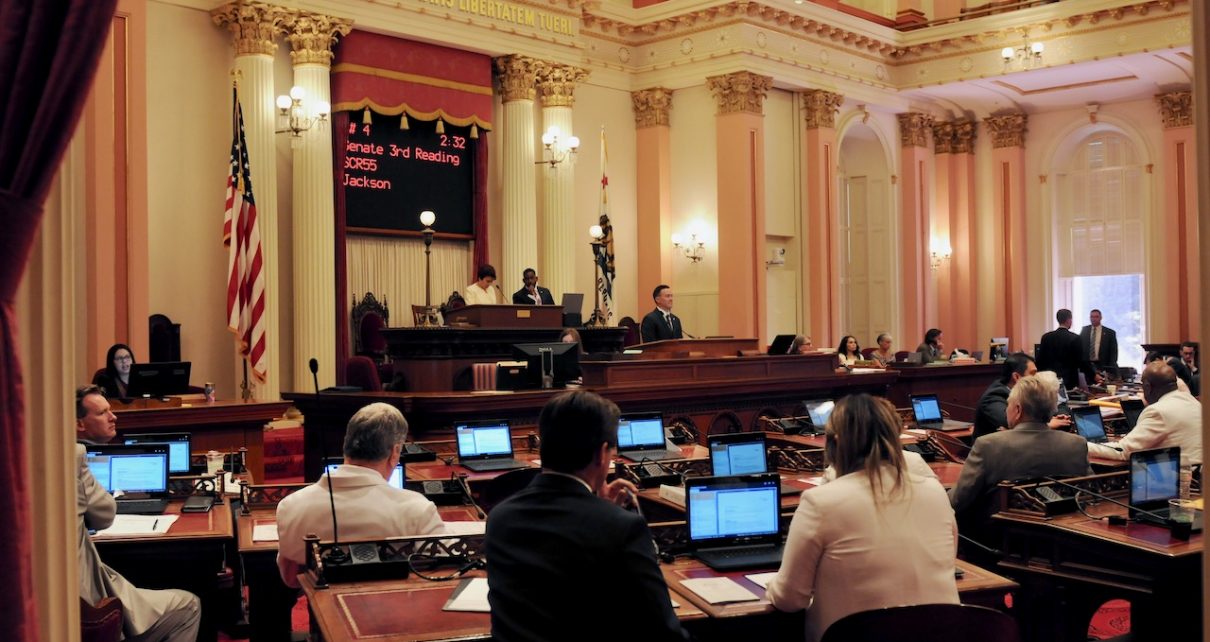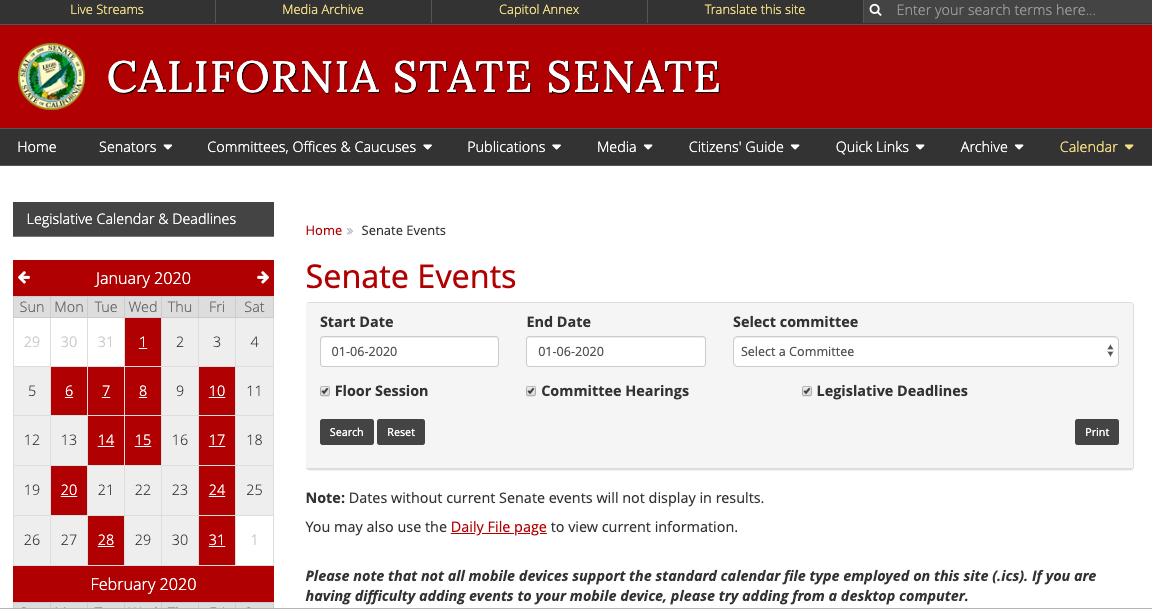
California State Senate. (Photo: Kevin Sanders for California Globe)
Crimes against the Legislative Power
‘Do not disturb’ the house
By Chris Micheli, October 2, 2019 6:05 am
California law contains statutes related to crimes against the “Legislative Power.” These provisions are found in Article III, Sections 9050 to 9056, of the California Government Code and are intended to combat crimes against the Legislature and the legislative process.
Section 9050 provides that every person who willfully, and by force or fraud, prevents the Legislature, either of the houses composing the Legislature, or any of its members from meeting or organizing is guilty of a felony.
Section 9051 provides that every person who willfully disturbs the Legislature, or either of the houses composing the Legislature while it is in session, or who commits any disorderly conduct in the immediate view and presence of either house tending to interrupt its proceedings or impair the respect due to its authority is guilty of a misdemeanor.
Section 9051.5 provides that, as used in this article of the Government Code, “bill or resolution” includes a constitutional amendment.
Section 9052 provides that every person who fraudulently alters the draft of any bill or resolution which has been presented to either of the houses composing the Legislature for passage or adoption, with intent to procure it to be passed or adopted by either house, or certified by the presiding officer of either house, in language different from that intended by the house, is guilty of a felony.
Section 9053 provides that every person who fraudulently alters the enrolled copy of any bill or resolution which has been passed or adopted by the Legislature, with intent to procure it to be approved by the Governor, certified by the Secretary of State, or printed or published by the State in language different from that in which it was passed or adopted by the Legislature is guilty of a felony.
Section 9053.5 provides that every person who intentionally, maliciously, with knowledge of the falsity, and with intent to defame a particular legislator, publishes or causes to be published any writing which purports to be a facsimile of an actual bill or resolution, or any part thereof, of the California Legislature, which is not an exact copy of a bill or resolution, or part thereof, which has been introduced in the Legislature, is guilty of a misdemeanor. This section does not apply to the print media, the electronic media, or to news services.
Section 9054 provides that every person who obtains, or seeks to obtain, money or other things of value from another person upon a pretense, claim, or representation that he or she can or will improperly influence in any manner the action of any member of a legislative body in regard to any vote or legislative matter, is guilty of a felony.
Section 9055 provides that every member of the Legislature convicted of any crime defined in this article, in addition to the punishment prescribed, forfeits his or her office and is forever disqualified from holding any office in the State of California.
Section 9056 provides that any person who secures through his or her influence, knowingly exerted for that purpose, the introduction of any bill, resolution or amendment into the State Legislature and thereafter solicits or accepts from any person other than a person upon whose request he or she secured such introduction, any pay or other valuable consideration for preventing or attempting to prevent, the enactment or adoption of such measure, while it retains its original purpose, is guilty of a crime and upon conviction is punishable by a fine of not exceeding $10,000 or by imprisonment in a county jail for not more than one year, or by both that fine and imprisonment.
These code sections provide significant criminal penalties for those persons who interfere with the Legislature and its official proceedings. Individuals are prohibited from engaging in conduct that will falsify legislative documents or create inaccurate materials upon which legislators rely.
- Duties of Law Enforcement in Emergency Protective Orders - July 12, 2025
- Automatic Repeal of State Agency Reports - July 11, 2025
- Confidential Marriages in California - July 10, 2025







